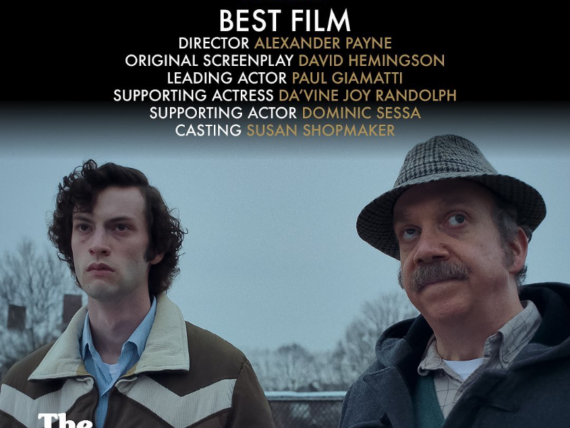Crimson Peak is showing at Plymouth Arts Centre from 20 – 26 November.
Guillermo del Toro is arguably the greatest visionary director working in Hollywood today – and Crimson Peak shows his talents at their visually vibrant best.
It should go almost without saying that from a production and costume design standpoint, del Toro’s latest ‘Gothic horror-romance’ delivers in signature fashion. The film is gorgeous in the typically dark, eccentric kind of way one expects from del Toro, and the team working with him on this movie – including composer Fernando Velazquez and Danish cinematographer Dan Laustsen – play vital roles in bringing his vision for Crimson Peak to life.
Laustsen’s cinematography was easily the best thing about the 2006 Silent Hill movie; a video game series in which del Toro himself was briefly involved alongside Hideo Kojima with the false dawn that was the failed Silent Hills project. Others who were fortunate enough to sample the PT demo that remains the only evidence of what the director could have achieved with that title, will similarly pine for it as I did at certain points while watching Crimson Peak. This film features a lot of ‘encountering strange things in corridors’, and one scene in particular has Mia Wasikowska’s character Edith approaching a partially open door before it’s slammed shut by something on the other side. Sound familiar?
Edith Cushing (Wasikowska) is the young woman around whom this film’s narrative revolves, though she is not its most interesting character nor is Wasikowska given much to work with in terms of character development – her most taxing moments being reactions to the events happening around her. Tom Hiddleston on the other hand, provides a much more intriguing character and performance in his role as the charming, shady English aristocrat Sir Thomas Sharpe.
Sharpe’s overall character arc is by far the most interesting in the movie and is perhaps the strongest element of the film’s script, in contrast to his sister Lucille (Jessica Chastain) who ultimately appears no more than a villainous caricature. Hiddleston’s performance, one of the best I’ve seen from him, makes you feel suspicious, curious and even sympathetic towards his character, and not necessarily in that order.
The story begins with Sir Thomas Sharpe visiting Edith’s father and his business associates, to whom he presents a pitch for his clay mining invention as he seeks valuable investors. Though his proposal is rejected, he and Edith become romantically involved, and Edith soon finds herself visiting the dilapidated old mansion where Sharpe and his sister live. This takes place in a world where ghosts, it seems, are commonplace, and Edith has always been able to see them (though it’s left unclear whether anyone else can). Her harrowing – albeit harmless – encounters with spirits at the Sharpe’s old house make her begin to question the underlying intentions of her newfound romantic interest and his family history…
To be honest, Crimson Peak’s plot is not its strongest attribute, nor is its execution, at least until the exhilarating final 20 minutes. Up until that point, those moments that I touch on above – when Edith encounters strange happenings in the mansion’s corridors – appear simultaneously entertaining as spectacle and lacking in any sort of narrative substance.
The film, despite appearances, isn’t truly a horror movie and part of me feels like it would have been better placed to fully go that route rather than the Gothic semi-love story that it ends up being. Those ghosts are not there as a main attraction; rather they’re present for effect, as a side note to the main attraction. And any time the movie does try to become frightening, it does so by utilising those dreaded jump scares that too many American horror movies fall back on.
Ironically, although Crimson Peak made me pine for what Silent Hills could have been, the main thing it lacks is what the PT demo had in abundance: atmosphere. This film has some nice effects and looks beautiful, no disputing that, but it all feels so surface-level. There’s a severe shortage of subtle undertones or metaphorical storytelling – major plot points are basically spoon fed to the audience.
Visually this film is stunning, and for many people that alone would be enough to make it a satisfying experience.
I was left feeling slightly underwhelmed by Crimson Peak in the end – which is not to say there wasn’t parts of it I very much liked, of course. Part of me just really wanted to like it even more; to name it as a clear ‘film of the year’ contender perhaps… but ultimately the film fell just short of that for me. While I definitely see it as a strong contender to win two or three Oscars next year, it didn’t truly resonate on an emotional level quite as much as I had hoped.
Graeme Stevenson










Comments
No comment yet.